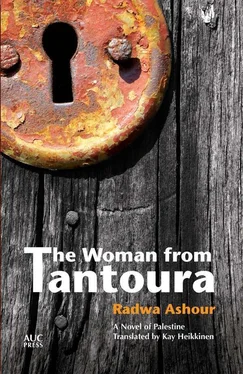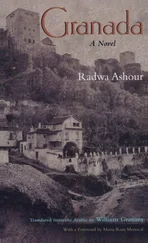Bashir Gemayel: Leader of the Phalange party and commander of the Lebanese Forces; elected president of Lebanon August 23, 1982 and assassinated September 14 of that year.
the ‘company’: Name used by Palestinians to refer to Jewish settlements during the Mandate.
dabka: A traditional line dance popular in the Levant.
Druze: A religious and ethnic group originating in an outgrowth of Ismaili Shiism in the eleventh century.
Eid: “Holiday”; often used alone to refer to Eid al-Fitr, or the holiday of the breaking of the fast at the end of Ramadan.
Fairuz: An extremely popular Lebanese singer (b. 1935).
Fatah: An acronym for the Palestinian National Liberation Movement, founded in 1959 by Yasser Arafat and others, and dedicated to the armed struggle for the liberation of Palestine. It joined with the Palestine Liberation Organization in 1969.
Fatiha: The short opening chapter of the Qur’an, often recited as a brief prayer, particularly to solemnize an agreement such as a promise of marriage or to pray for someone deceased.
fedayeen: Resistance fighters willing to give their lives, if necessary, to stand up to oppression. The term is particularly associated with Palestinian resistance fighters during the first several decades following the creation of the state of Israel.
hajj: The pilgrimage to Mecca; one of the five pillars of Islam.
Hittin: Palestinian site of a famous battle in which Saladin defeated the Crusaders (1187).
al-Hunayti: A captain in the Arab Legion and commander of the Arab Forces in Haifa.
iftar: The meal by which the daily fast is broken, after sundown, during the month of Ramadan.
Intifada: “Uprising”; a name given to two periods of resistance movements of Palestinians in the Israeli occupied West Bank, ca. 1987–93 and ca. 2000–2005.
jihad: “Effort” for the sake of God, sometimes referring to armed struggle.
jinn: Creatures mentioned in the Qur’an; they have intelligence, like humans and angels, but are created of fire.
kubbeh (bi-laban): Popular Levantine dishes centering on a mixture of ground meat, cracked wheat, and minced onion; the variety ‘bi-laban’ has a yogurt sauce.
kufiyeh: A traditional headcloth worn by men, often with a checkered pattern.
kunafa: A dessert of cheese pastry soaked in a sweet syrup.
labneh: A thick spread made from yogurt.
Laylat al-Qadr: The night before 27 Ramadan when the first revelation of the Qur’an was made to Muhammad. It is believed to be a blessed night when God answers prayers.
lira: Lebanese currency.
lukoum: “Turkish Delight”; a gummy sweet made in various flavors and sprinkled with powdered sugar.
madafa: A meeting room for the men of a village, and a place to receive guests.
maqlouba: A Levantine dish of meat, rice, and vegetables, packed into a mold and then reversed onto a plate.
mufti: A scholar of Islam qualified to rule on points of Islamic law.
mujaddara: A Levantine dish of cooked lentils, rice, and onions.
mulukhiya: Leaves of the mallow plant (related to okra), used to make a green-colored soup or stew in Egypt and the Levant.
musakhan: A dish of chicken roasted on flatbread with sumac and saffron.
Naji al-Ali: Palestinian cartoonist, sharply critical of Israel and
Arab regimes (1938–1987).
Phalange: A right-wing, ultranationalist political and paramilitary organization in Lebanon, drawing most of its supporters from among the country’s Maronite Christians.
The Popular Front for the Liberation of Palestine (PFLP): A secular, leftist revolutionary organization formed in 1967 from three smaller organizations, under the leadership of Dr. George Habbash, and known for airline hijackings and other high-profile acts in support of the Palestinian cause. It has been part of the umbrella organization of the PLO since 1968.
qumbaz: A man’s long-sleeved garment, open in front and closed with a belt.
Saad Haddad: Founder and head of the South Lebanon Army, allied with Israel (1936–84).
Sayyid Hasan (Nasrallah): Secretary General of the Shii organization Hezbollah after 1992, and leader of the Lebanese resistance.
Second Bureau: Lebanese intelligence service.
Shahada: Affirmation of the unity of God and prophethood of Muhammad (one of the five pillars of Islam).
Shatir Hasan: A hero of traditional tales.
sheikh: Literally “elder”; used for authoritative Islamic religious figures, as well as for headmen of villages and towns.
sitt: “Lady”; sometimes used as a title. As a noun, it can also designate a grandmother.
Teta: An affectionate name for a grandmother.
thawb: “Dress”; often specifically a traditional, floor-length, long-sleeved dress.
Umm Kulthum: An enormously popular Egyptian singer (ca. 1900–75).
Yaammaa : An exclamation indicating how much something is, that it is too much.
yalla: “Let’s go,” or “Get going.”












